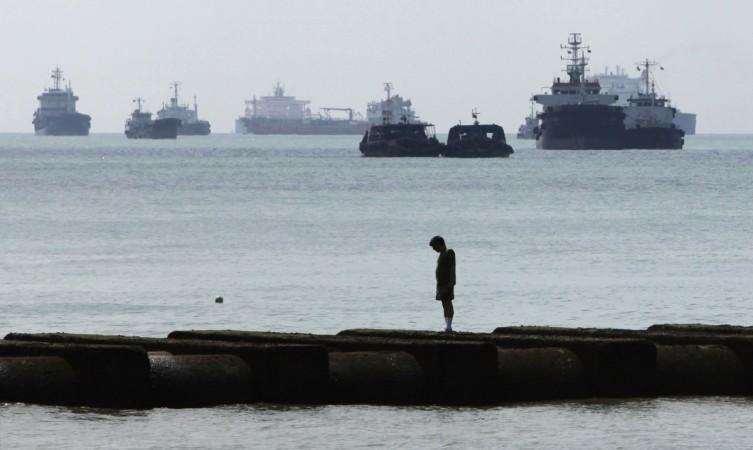
Rumblings of an impending conflict are rising over the Middle East horizon. Both Saudi Arabia and the UAE have said their oil tankers were targeted by "sabotage operations" near the Strait of Hormuz, a strategic passage through which more than 25 percent of the world's crude passes.
Who is behind the attack? What was the scale of it? Answers to these and other questions are shrouded in mystery. While the US points fingers at Iran, UAE and Saudi Arabia haven't raised the spectre openly. Interestingly, after the Saudis claimed the sabotage attack on fuel tankers on Monday, Iranians issued a statement condemning it.
It was on Sunday that the UAE said four commercial cargo ships were attacked off its eastern coast, near the Hormuz Strait. However, 24 hours earlier, Lebanon's pro-Hezbollah Al-Mayadeen satellite channel had said seven oil tankers of the UAE were involved in an explosion in the Fujairah port. The USE denied this report, which was picked up by Iranian press.
Signs of intensifying conflict
Now, a day after the UAE conceded that four of its vessels were attacked, Saudi Arabia has also said its ships were also targeted in sabotage attacks.
All this has come amid signs of intensifying conflict between the US and Iran. The US is moving more of its military assets to the region. It had also warned its allies in the region of possible Iranian attacks on oil tankers and commercial vessels.
Both Saudi Arabia and the UAE haven't given the account of the damage or casualties suffered in the attack. Interestingly, both the American allies and Iran are voicing concerns over the region's safety and stability in the aftermath of the attacks. Iran called for more information on the purported attack on Monday and warned against "conspiracy orchestrated by ill-wishers" and "adventurism by foreigners", according to the Associated Press.
Relations between the US and Iran soured further after American President Donald Trump withdrew from the US-Iran nuclear treaty. Tehran last week said it would start enriching uranium at higher levels if the treaty wasn't put in place again.
Oil exports were temporarily halted from Fujairah after the incident. UAE said earlier this year it's building the world's largest crude oil storage facility in the city, which is about 140 kilometers south of the Strait of Hormuz.
US warning against Iran, proxies
The US Maritime Administration issued a warning last week about possible attacks, specifically mentioning Iran.
"Since early May, there is an increased possibility that Iran and/or its regional proxies could take action against U.S. and partner interests, including oil production infrastructure, after recently threatening to close the Strait of Hormuz ... Iran or its proxies could respond by targeting commercial vessels, including oil tankers, or U.S. military vessels in the Red Sea, Bab-el-Mandeb Strait or the Persian Gulf," the communiqué said.
While Iranian Foreign Ministry spokesman Abbas Moussavi said the incident was "lamentable" and "worrying", Iran's Press TV speculated that drone attack from Yemen may have been the reason. It also said the US may have possibly dropped to 'ignite tensions in the region.

















